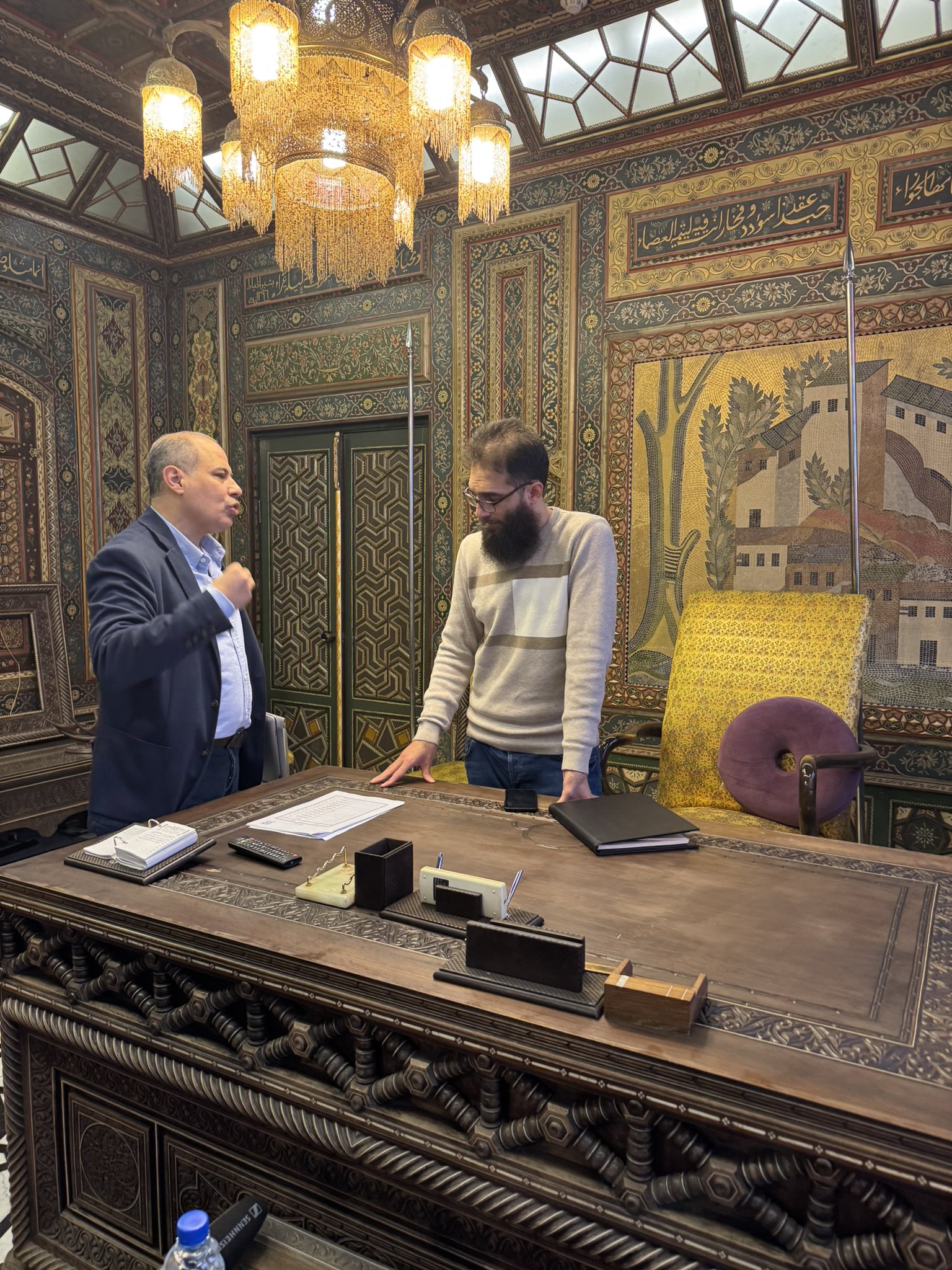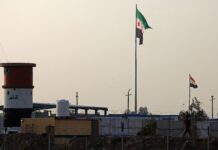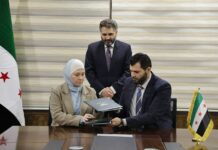
The Syrian revolution’s decisive overthrow of the Assad regime marks a new era for the war-torn country, with the Syrian Transitional Government assuming control of state institutions and critical files. As Syrians celebrate the fall of a dictatorship that terrorized them for over five decades, the monumental task of rebuilding the nation begins.
The leader of the Command of Military Operations, Ahmad al-Sharaa, sought to reassure the international community on Tuesday, emphasizing that the situation in Syria is stable. “Foreign governments should not worry. Things are under control, and we are confronting challenges with well-studied plans aimed at achieving stability,” Al-Sharaa said. He highlighted the exhaustion of the Syrian people from years of conflict, stating that the country is not prepared to enter another war. “The fear was the Assad regime, and it has fallen. The country is now moving toward development, reconstruction, and stability.”
The fall of Bashar al-Assad, who fled to Russia, also signals a major geopolitical shift in the Middle East. Assad’s departure ends 13 years of civil war and over 50 years of his family’s rule, disrupting a key axis of influence for Iran and Russia in the region.
The Central Bank of Syria has taken swift action to stabilize the financial system. In a statement, the bank assured citizens that their deposits were safe and that the Syrian pound would remain the sole currency in circulation. The bank also dismissed rumors about the withdrawal of certain denominations and pledged that official announcements would come only through its verified platforms.
The transitional government faces enormous economic challenges, including significant national debt. Caretaker Prime Minister Muhammad al-Bashir acknowledged the difficulties but expressed optimism, citing the successful management of Idlib under revolutionary institutions as a model for recovery. “We do not have foreign currency reserves yet, and we are still gathering data on loans and bonds. However, we believe that with time, we can improve Syria’s situation,” Al-Bashir said.
Key state institutions have begun transferring files and responsibilities. The central leadership of the now-suspended Arab Socialist Baath Party announced it would hand over party assets, vehicles, and funds to the Ministry of Finance and the Ministry of Justice. Meanwhile, Sham University, a private institution previously linked to the Assad regime, has been placed under the supervision of the Ministry of Higher Education.
In a meeting with the leadership of the Southern Operations Room, a confederacy of revolutionary military forces based in Daraa, al-Sharaa emphasized the importance of coordinated efforts to ensure stability in regions like Hauran. “Today’s meeting is an important step toward unifying revolutionary forces under a central leadership that preserves everyone’s rights,” he said.
The transitional government is already making strides to consolidate authority and manage the newly liberated nation. Muhammad Ghazi al-Jalali, the former prime minister under Assad, confirmed that his administration has transferred files to the caretaker government. He acknowledged the disarray within Assad’s regime, revealing that key ministers had either fled the country or were uncommunicative in the regime’s final days. Al-Jalali urged citizens to protect public facilities, declaring, “State property belongs to all Syrians. I call on everyone to preserve it.” He also denied rumors that he was under house arrest or otherwise mistreated.
Idlib’s Syrian Salvation Government (SSG) has been tasked with forming a new cabinet to oversee the next phase of governance. Al-Sharaa assured Syrians that the new administration is prepared to face the immense challenges ahead, reiterating a vision of unity and accountability. As the country embarks on a journey of reconstruction and reconciliation, international observers are closely watching how Syria navigates this pivotal moment in its history.








